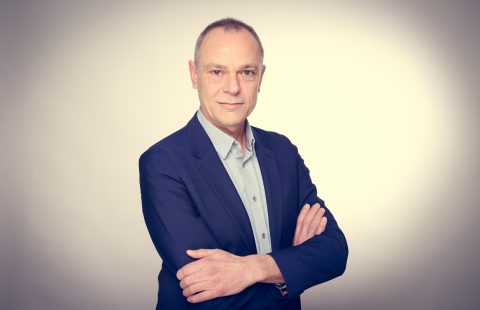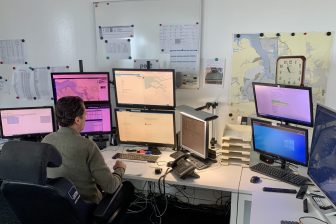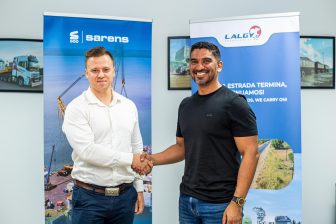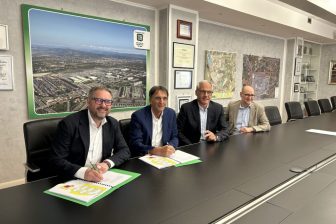
“It started the day I was born,” Ard Suvaal, TGP
Some of us find peace in what we do, some of us find passion, some of us stumble into an industry and stay, while others are almost born into it. Such seems to be the relation of Ard Suvaal, Group Operations Manager at TGP, and project logistics.
“It started from the day I was born. Ships, trucks, and cranes have always been my passion. From the age I was allowed to have summer jobs, every holiday I worked with transport companies in Rotterdam a few weeks,” Suvaal tells Project Cargo Journal.
Throughout his career he has worked held various positions with EPC contractors, heavy lift equipment owners and project freight forwarders, including extended assignments at construction sites abroad. And having had spells at a number of different companies, Suvaal considers himself lucky to have been able to work under “a lot of great people”, learning something new from each and every one of them.
Listening to the ones on the field every day
“IT systems have improved efficiency tremendously, but, at the same time, took away part of the human
side of the job. Often, there’s no person at the other end of the line. And when you communicate with a
human being, it’s mainly through electronic messages. You then only address what’s written, and miss
out on unasked questions that you normally pick up from body language or a tone of voice,” says Suvaal, adding that also, in a personal conversation one sometimes wanders off beyond the shoulder of the road, which is a great
opportunity to learn. That doesn’t happen enough anymore.
What needs to happen in the future, according to Suvaal is giving more attention to the people on the field, the drivers, equipment operators, riggers, seafarers. “Ask for their opinion when preparing an operation. You’ll get quick, straight forward answers and practicable solutions. That’s efficiency,” Suvaal says.
He adds that this industry is a niche that is best learnt on the job. “That means allowing new colleagues time to wander around, watch and listen. No instant productivity, but lots of added value later on. With the pressure on rates we’re seeing, this is difficult to achieve,” he says.
However, Suvaal does add that automation processes are bound to continue due to the obvious advantages. “But in the hunt for efficiency the human factor is forgotten, meaning we’ll see less creativity when designing solutions for complex transports, and a decrease in knowledge of the physics behind moving large and heavy objects,” he added.
Listening to the youth
Suvaal notes that the project logistics sector does not score high on themes that young people are concerned about: climate change, equality, work/life balance.
Maybe the question of that the industry should do to attract more young people would need to be asked to the youth. Just adjusting the image of project logistics will not do the trick. Real changes are needed to prove that the industry cares about the younger generations.
“Transporting a heavy or large item sometimes takes months or even years of preparation, and when the engines start, the pressure really is on. The feeling within a team when the item finally rests at its destination is special,” Suvaal says.
Perhaps the fact that achieving something tangible is the satisfaction one gets from being in this line of business is enticing to the youth. That feeling at the end, especially when delivering a project that matters to the younger generations could be the push that is needed.
Read also:
- From road to the sea, the story of José-Antonio Del Río, UECC
- People are irreplaceable in this line of work, Raushan Utegenova, Ahlers
- Project logistics occasionally bring an operational storm along says Andy Cheng, GAC Malaysia
You just read one of our premium articles free of charge
Register now to keep reading premium articles.




